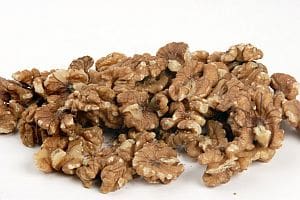statFor some women, it's about making an elegantement at special events or being a couple…

Benefits of Selenium
 Selenium is essential for the maintenance of a healthy metabolism, although we need it only in trace amounts. It is naturally found in the soil and in a number of the foods we eat. Because we require so little of this mineral to maintain healthy levels, most people can get all the selenium they need from their regular diet. However, there are some instances in which a healthcare professional might recommend taking a mineral supplement. Read here the benefits of selenium.
Selenium is essential for the maintenance of a healthy metabolism, although we need it only in trace amounts. It is naturally found in the soil and in a number of the foods we eat. Because we require so little of this mineral to maintain healthy levels, most people can get all the selenium they need from their regular diet. However, there are some instances in which a healthcare professional might recommend taking a mineral supplement. Read here the benefits of selenium.
Selenium improves the flow of oxygen to the heart, supports the immune system (it’s pivotal in the production of white blood cells and antibodies), and decreases the risk of blood clotting. In addition, it reduces “bad” LDL cholesterol while raising “good” HDL cholesterol. Selenium is also important for the regulation of thyroid hormones, which is why many people with low selenium levels often feel weak and sluggish.
Selenium deficiency has been associated with higher numbers of cancer deaths. Selenium’s cancer-fighting properties are partly due to the fact that it is such a potent antioxidant, killing free radicals that cause damage to our cells and organs and trigger cancer. It is particularly effective at preventing cancer of the prostate, lungs and colon. One five-year study performed by researchers at the University of Arizona and Cornell University found that taking 200 mcg of selenium daily (about the amount of selenium in two Brazil nuts) leads to an overall decrease in cancer deaths by 39%.
However, it’s also important to recognize that you can have too much of a good thing when it comes to selenium. The safe upper limit for adults is generally considered to be 400 mcg per day. An overdose of selenium can cause nausea, fever, and heart, kidney and liver damage. In addition, elevated selenium intake over the long term has been associated with an increased risk of non-melanoma skin cancer and type 2 diabetes. These are all good reasons to consult with your doctor before taking any type of selenium supplement.
Following is the recommended daily intake of selenium for different groups of people:
Children 1 – 3 years: 20 mcg/day
Children 4 – 8 years: 30 mcg/day
Children 9 – 13 years: 40 mcg/day
Children 14 – 18 years: 55 mcg/day
Adults 19 years and older: 55 mcg/day
Pregnant women: 60 mcg/day
Breastfeeding women: 70 mcg/day
The average American gets 125 mcg of selenium per day from his or her diet. Even those who live in areas where the soil is lower in selenium get between 60 and 90 mcg per day, which is adequate for most people. Individuals with HIV or Crohn’s disease and those who are fed intravenously are at greater risk of a selenium deficiency. If you are interested in boosting your selenium levels naturally, you can get more of this mineral from these selenium-rich foods: Brazil nuts, walnuts, fish, shellfish, beef, poultry, garlic and whole grains.




